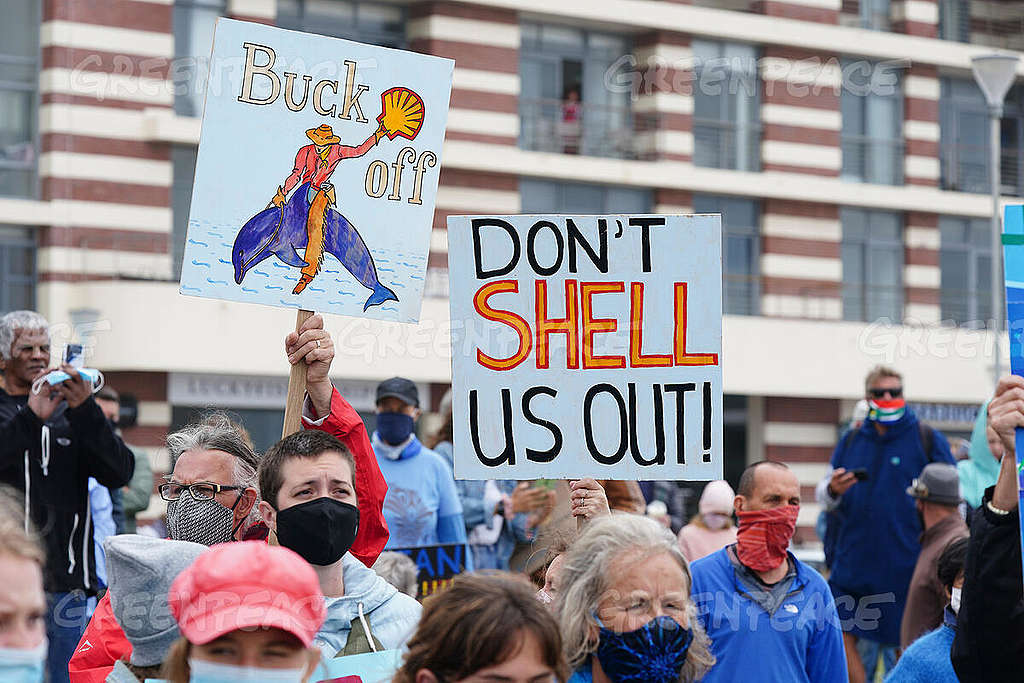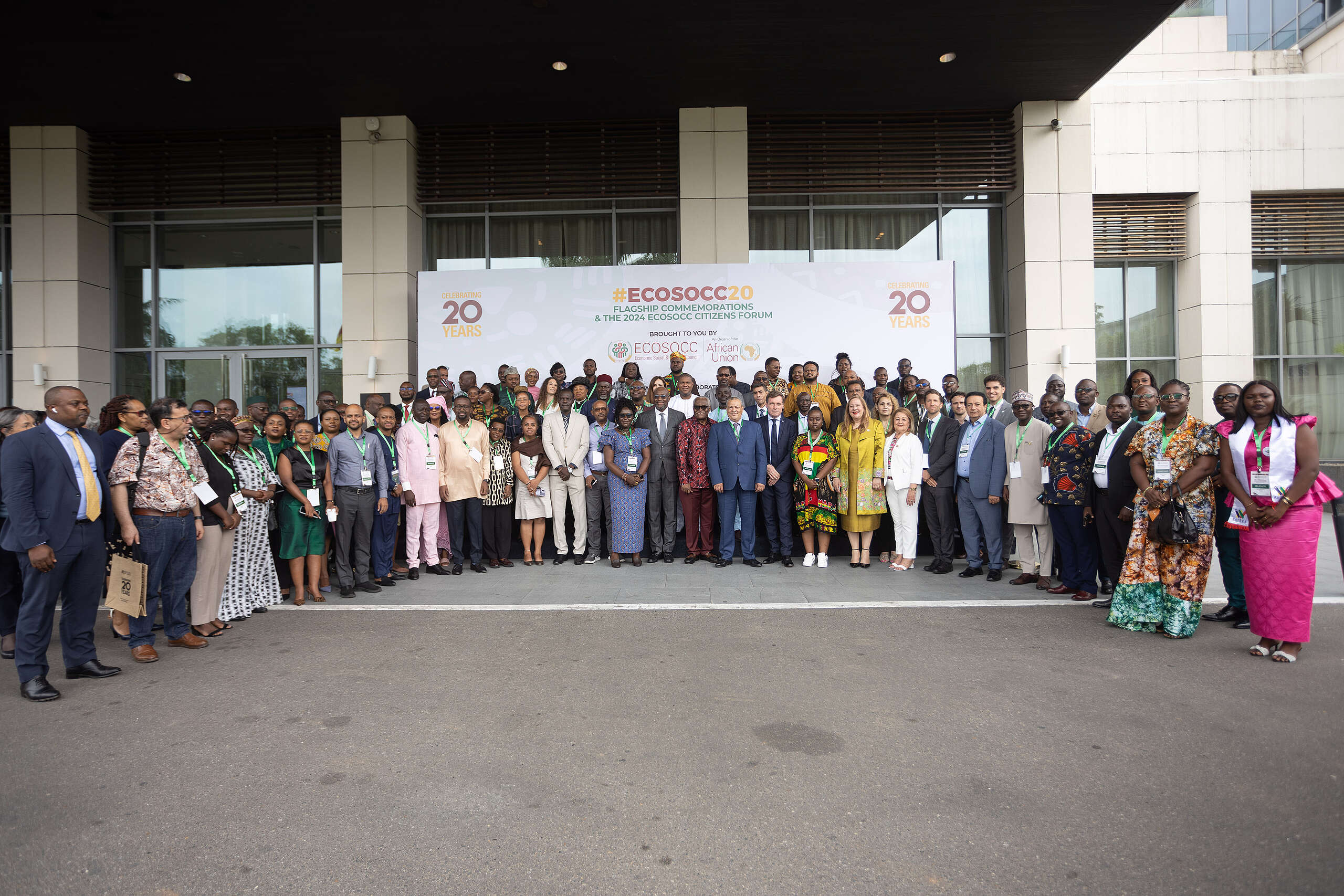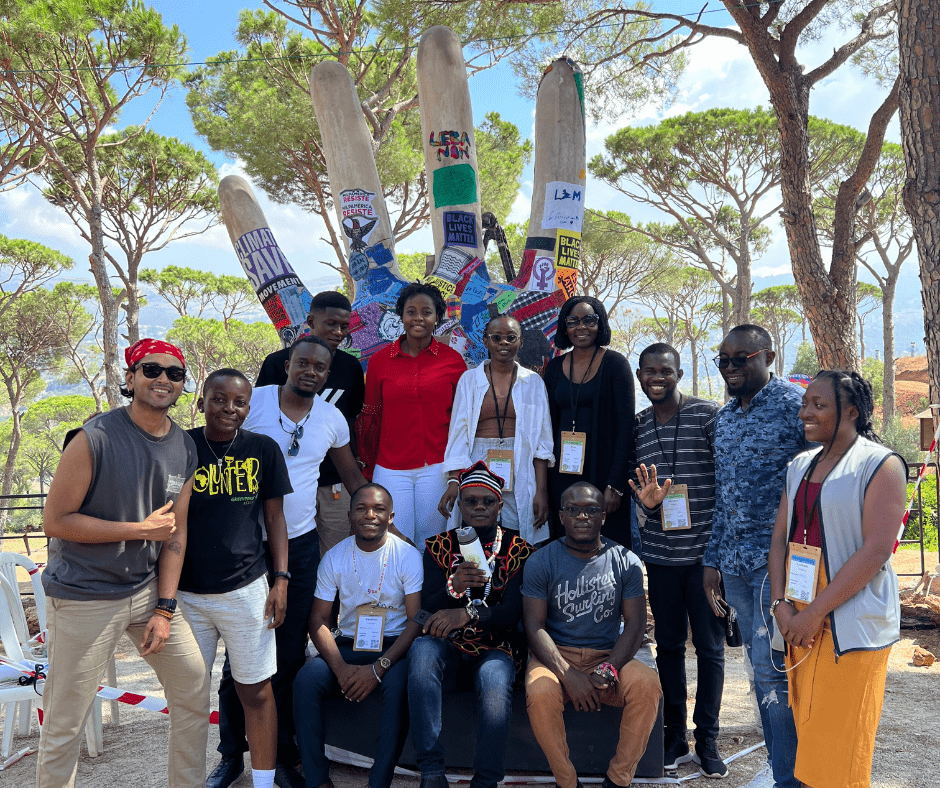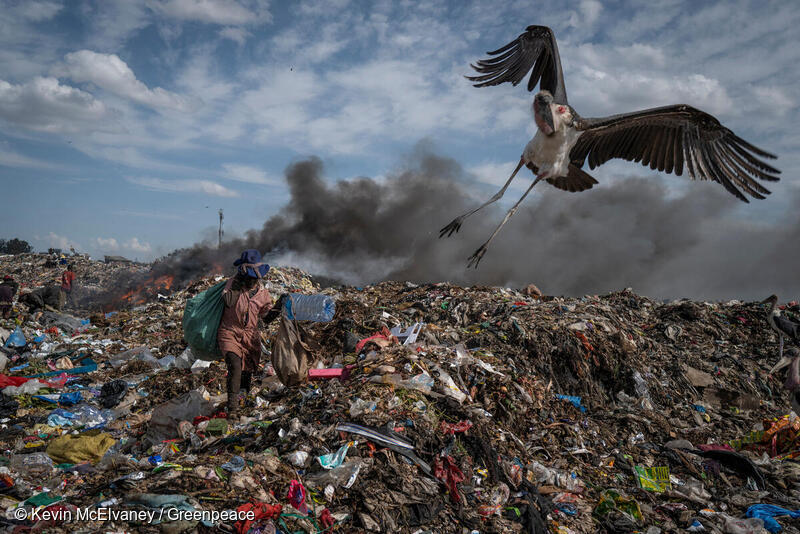
Your donation will help us take back our oceans from Big Oil.
South Africa’s oceans sustain life, both in the water and on land. They are home to a vast array of marine life, providing a vital food source for millions of people, and supporting a thriving way of life for coastal communities dependent on clean and healthy waters and beaches.
These waters or this underwater world is peaceful and quiet in a way that most of us don’t stop to even think about: it’s only filled by the sounds of its sea life. The ocean ecosystem is faced with many threats, which include climate change, ocean acidification, water pollution, and now seismic blasting.
Seismic surveys are one of the most powerful noise pollutants and can harm the mammals that live in the ocean as well as cause damage to the ocean’s ecosystem and the livelihoods dependent on it.
How Seismic Airgun Blasting Works
Seismic blasting is an offshore oil and gas exploration technique that uses deafening seismic surveys that generate loud sounds in the ocean.
Shell is the culprit in this case, as the corporation continues to fight to have its oil and gas exploration project carried out across 6,000 square kilometres of the Indian Ocean, from Morgan Bay to Port St Johns off the Wild Coast of South Africa.
These marine seismic surveys use airguns to create seismic waves deep into the ocean to identify the potential for oil and gas.
These airguns use loud blasts repeatedly and are so noisy that they penetrate through the ocean and deep into the seafloor. The explosions generally go off every ten seconds, 24 hours a day, and often for weeks on end. They are so loud that they penetrate through the ocean and miles into the seafloor.
These high-intensity seismic sound pulses are reflected by the ocean floor and recorded using very sensitive hydrophones. After being processed, these signals are used by researchers to generate information about the topography of the ocean floor and its underlying geological formations to inform them of the location of buried oil and gas deposits.
Because sound will travel differently through air than it does water, it makes it hard to compare the two environments.
However, the blast of a seismic air gun used to map the sea floor for oil and gas can be as loud as a rocket launch or an underwater dynamite explosion.
Some of these sounds are audible for hundreds of kilometres. This shows that it is not only the quality of life of marine animals that is affected but real impacts are felt.
The most obvious sign of trouble came when research findings proved that airgun blasts could lead to temporary and permanent hearing loss, habitat abandonment, mating and feeding disruption, beach strandings, loss of ability to communicate, the blasts can also damage animals’ hearing and health, cause fishery populations displacements, and kill vast numbers of zooplankton, a crucial marine food resource.
Seismic surveying also changes the individual and social behavior of animals, causes altered metabolisms, and can subsequently affect the health and service functions of marine ecosystems.
The Precious Ecosystems Off The Coast Of South Africa
Approximately 13, 000 species have been documented in South Africa’s marine realms, including almost a quarter of global cephalopods (octopus, squid and cuttlefish.) With over 3800 species occurring nowhere else on earth, South Africa ranks third in the world for marine species uniqueness.
When you destroy one ecosystem of the ocean, all parts suffer. For years harmful industrial activities like overfishing and now the gas and oil industry, have been killing marine life and destroying ecosystems. This has left the ocean in imbalance and is affecting all life in our oceans.
Here at Greenpeace Africa, we are working towards protecting our oceans. This would mean leaving safe spaces for marine life and providing areas in which the ocean can replenish and rebalance.
Harmful Effects of Seismic Blasting
1. Affects Coastal And Fishing Communities
Fishing is different from most jobs, it quite honestly is a way of life. This is why we must sound the alarm against corporations trying to devastate the livelihoods of local fishing and coastal communities who depend on this way of life by carrying out Seismic testing.
Seismic surveys get so loud that they cause fish and other marine species to temporarily migrate away from the affected area.
With this migration, food security of the small-scale fishing communities that rely on the ocean for their livelihood and basic food security then becomes threatened as they are not able to make their daily catch.
In essence, these corporations are getting away with murder when it comes to the ocean and so we must give voice to the ocean by not allowing these oil and gas companies to carry out this oil and gas exploration.
Furthermore, fish stock is destroyed by these seismological studies. Marine life is put in danger and commercial or even subsistence catches are put in jeopardy.
Whenever fishermen go fishing after these tests are done in ocean waters, they end up not catching anything at all. We must remember that the ocean is many people’s source of food. How can coastal communities thrive with such grotesque interference with the precious ocean?
2. Affects The Lives Of Marine Animals Who Live In Ocean Waters
The ocean is a world of sound. Mammals living in the ocean, especially dolphins and whales depend on their sensitive hearing to communicate to find food and to survive. What seismic prospecting of hydrocarbon deposits does is it turns large parts of the ocean into a blast zone.
Living on land allows us to escape the noise but the animals in the ocean cannot. Seismic testing has been linked to damaging effects on sea life from whales to microscopic zooplankton. So much so that numerous countries have placed bans on these seismic tests.
3. Unnecessarily Locks South Africa Into Fossil Fuel Energy Consumption
Marine seismic testing only leads to the subsequent drilling for fossil fuels if oil is found.
Oil wells are then drilled causing gas and oil fields to reside off our coast. To protect the coast and all of the ecosystems that thrive there will require an end to offshore drilling in our oceans.
If they find oil it leads to subsequent drilling and oil rigs off our coastline. This is not acceptable. The additional greenhouse gas emissions that will originate from new oil and gas fields in South Africa will push our already climate-stressed country closer to its tipping point.
South Africa’s pursuit of energy self-sufficiency through renewables should remain as it does not come at the cost of its unique biodiversity nor the ocean’s health.
This is especially because South Africa is already one of the world’s largest contributors of greenhouse gases and must play its fair share to help reduce GHGs.
South Africa should harness its impressive scientific and technical capacity to develop and harness sustainable, renewable energy sources, in line with the country’s vast potential.
We must fight all attempts by the oil industry to open our oceans to drilling, and we must invest in the clean, renewable energy that will protect our life-giving oceans, the communities that rely on them, and our climate.
4. Seismic Testing Leads To Oil Spills
Mauritius Oil Spill in the Indian Ocean. The scene of the oil spill in the waters around Mauritius after Japanese bulk carrier, MV Wakashio, ran aground on 25 July 2020.
As we see continuously, catastrophic oil spills devastate coastal communities as well as ocean and coastal wildlife. These oil spills push critically endangered marine species toward extinction and cost local economies monetarily. However, it’s not just huge oil spills that are harmful; the
offshore oil industry will frequently spill smaller amounts of oil risking human health and damaging the marine environment. These disasters also have a huge economic impact on commercial
fishing revenues and recreational tourism spending.
5. Leads To Ecosystem Destruction
Offshore drilling, a consequence of seismic blasting, requires significant onshore infrastructure, such as pipelines and refineries, that change the character of seaside communities, hasten the loss of wetlands, and heighten the impacts of storm surge and sea level rise.
Seismic Surveys in South Africa
People across South Africa are vehemently opposing Shell’s plans to conduct seismic blasting in the Wild Coast.
Shell has been operating in South Africa for 120 years. As of November 2021, it became known that they planned on conducting a 3D seismic survey off the Wild Coast. The aim of this was to explore potential hydrocarbon reserves beneath the seabed. Shell claimed that it had in place procedures for managing the impacts of seismic activities on the environment and ecology of the ocean.
However, knowing the damage that these seismic waves could cause we took to the streets and to the courts. We were successful. You can find the full version of events here.
Currently, a court order stands. This court order blocks Shell from carrying out any seismic surveys off the West Coast. The recent order hinges on whether affected communities that hold traditional rights, including fishing rights in the waters, were properly consulted. The judge ruled that they were not, while also noting that concerns about irreversible harm to marine life had truth to it. This was a major win and goes a long way in protecting the rights of these communities.
You could offer a helping hand by signing and sharing this petition to protect our oceans.
Solutions We Can Put In Place To Stop Seismic Surveys
1. Protect Our Oceans From Offshore Drilling
If we are to limit global warming to 2 degrees celsius all unproven reserves of oil, gas, and coal must not be developed. We need to end our reliance on oil and gas and the hazard and harm of offshore drilling as soon as possible. As we do that, we must ensure a just transition to renewable energy for workers and local communities.
2. Invest In Renewable Energy, Including Offshore Renewables
Renewable energy is the future, and the solar and wind industries are growing quickly. Clean energy sources not only displace the burning of fossil fuels, which spews toxic and climate-changing pollutants into our air and water, but can also create millions of jobs.
In conclusion,
As with climate change, there’s enough evidence of the harm that these seismic signals have on marine life and the ocean’s ecosystem to move forward with action.
This dangerous method of searching for offshore oil and gas continues to threaten the health of regional fisheries and risks the jobs of those who depend on healthy oceans for their livelihood.
Greenpeace Africa has held many a rally and our message is clear we must protect our oceans, we must protect marine wildlife, we must protect our coastal communities and we must stop seismic blasting now.
On Shell’s website, the company said that it “respects the court decision in relation to the Wild Coast survey and has suspended the survey while we review the judgment.”
However, the fight is far from over. The judiciary will take up another part of the case application that will raise the question of whether Shell’s seismic operations will be permanently banned on South Africa’s oceans. This is why we are calling upon you to help us finance this legal battle against Shell. Your donation will help us take back our oceans from Big Oil.



